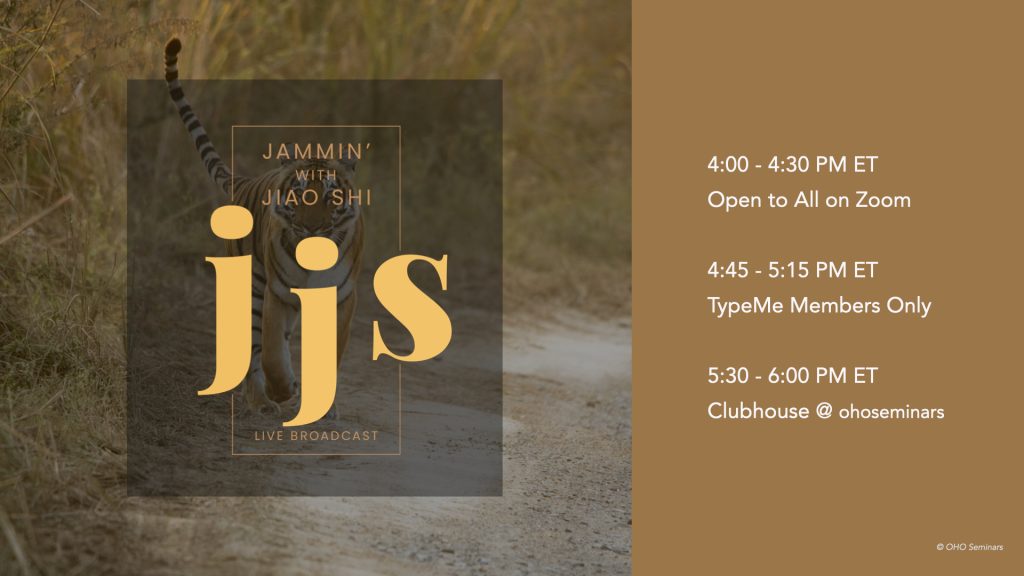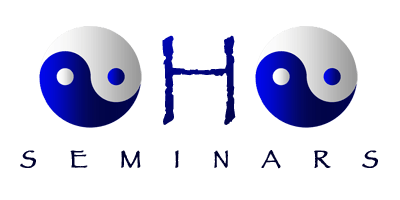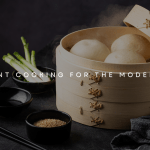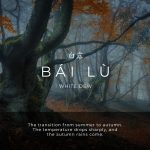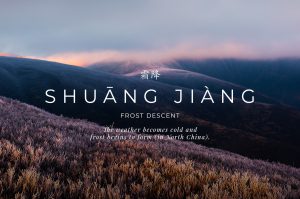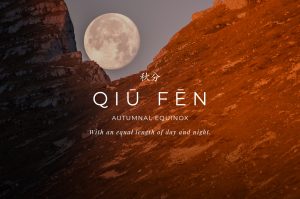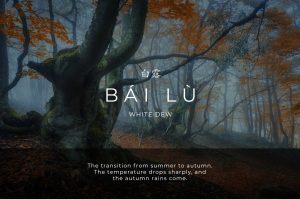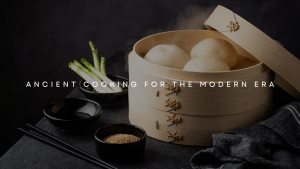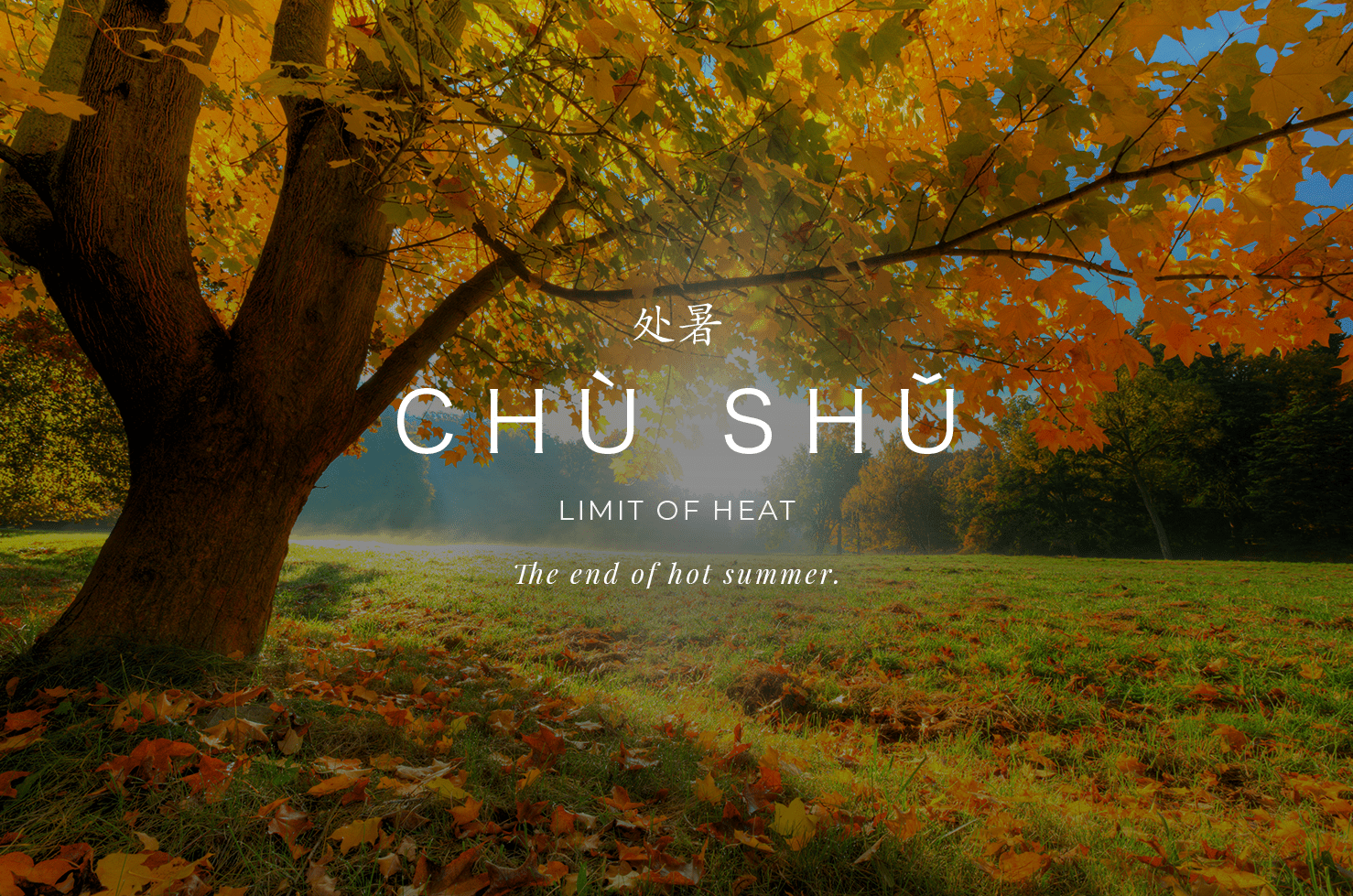
处暑 Chù Shǔ: Limit of Heat
处暑 Chǔ Shǔ, translated as Limit of Heat, is the 14th solar term in the Ancient Chinese Solar Calendar and the 2nd term of the fall season. This year it starts on August 23rd and continues through September 6th. 处暑 Chǔ Shǔ begins when the Sun reaches the celestial longitude of 150° and ends when it reaches the longitude of 165°.
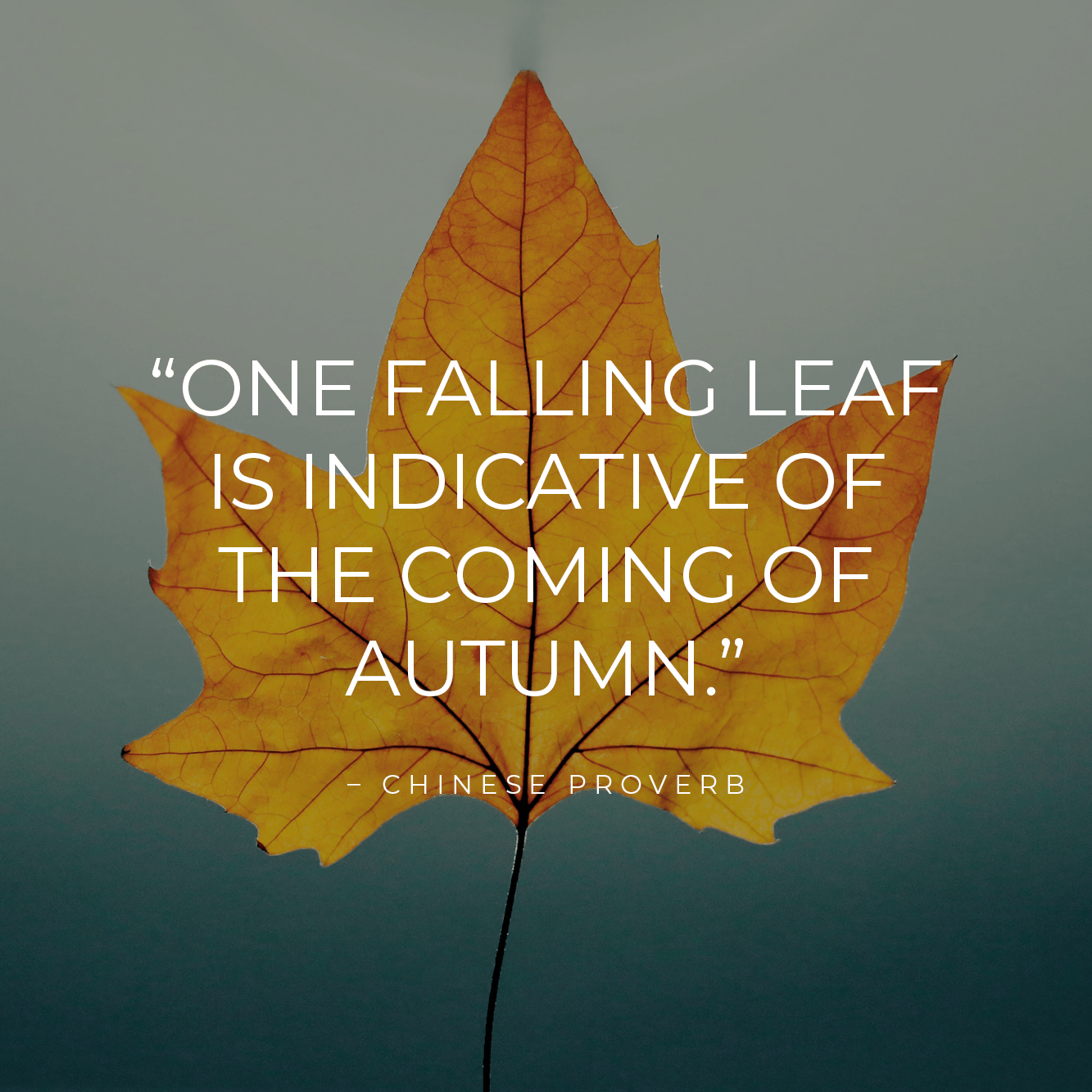
Let’s look at the meaning of处暑 Chǔ Shǔ, Limit of Heat:
处 Chǔ: stop, go out
暑 Shǔ: summer, heat, hot weather
“Falling leaves settle on their roots.”
– Chinese proverb
Each of the 24 solar terms is further divided into 3 pentads. The 处暑 Chǔ Shǔ pentads are:
1st pentad – 鷹乃祭鳥 eagles worship birds
2nd pentad – 天地始肅 heaven and earth begin to withdraw, implying the end of summer heat
3rd pentad – 禾乃登 grains become ripe
Autumn According To The Ancients

One of the main significances of 处暑 Chǔ Shǔ is that it announces the end of summer heat. Afternoons in certain parts of China still remain quite hot but mornings and evenings have begun to cool down. Such fluctuations of the Yang and Yin energies require necessary adjustments and re-balancing of the body’s temperature. Therefore, wearing suitable clothes and practicing prevention is recommended.
“People feel sleepy in spring, doze out in summer and feel tired in autumn.” – Ancient Chinese Proverb
With the ushering in of a new season, “autumn weariness” can begin to set in. People tend to stay active and exert a lot of energy during the summer season. By the time 处暑 Chǔ Shǔ comes around, the human mind and body seek a peaceful environment and craves replenishment.
“Go to bed early and get up with the chickens. This will cause all mental faculties to become calm and peaceful, and moderate the downward blow of autumn. Reel in your mental energy to be in harmony with the condensing quality of autumn Qi. Do not disperse your energies, and the lung Qi will be clear. This is the way of nourishing life in accordance with the nourishing and constricting Qi of the autumnal harvest season. Going against these principles will harm the lung network, eventually causing diarrhea in winter, when things should really be in a state of storage rather than leakage. The Qi of Autumn is dry, and so it is advisable to consume some moistening sesame to counteract the dryness. Avoid cold drinks, and do not wear damp and cold clothing close to your skin.”
–黃帝內經 Huangdi Neijing Su Wen
青黛 Qing Dai Blue Indigo: Herbal Medicine & Art

处暑 Chǔ Shǔ also marks the beginning of one of the peak seasons for fishermen in China. People come together to celebrate the fishing festival and hold celebrations of gratitude and prayer across coastal areas before fishermen go on their expeditions.
青黛 Qing Dai, also known as Indigo Naturalis or Chinese Indigo is a powder made from the leaves and stems of the Chinese Indigo plant. It has been used in Chinese Herbal Medicine for centuries and was first mentioned in 藥性論 Yao Xing Lun, Treatise on the Nature of Medicinal Herbs, in the 7th century AD during the Tang Dynasty. This important herb is ready for harvest during 处暑 Chǔ Shǔ. Over 200 herbal formulas contain 青黛 Qing Dai in Chinese Medicine.
For the last 2,000 years it has also been a significant source of indigo dye. 白族The Bai people who live in southwest China have been mastering and perfecting the extraction of indigo dye and the elaborate process of tie-dying for at least 1,000 years. Their tradition is closely guarded and passed from each father to his son. Bai tie-dyed items have been gaining global popularity and the art itself has been attracting tourists to Bai villages and towns from around the world.
处暑 Chù Shǔ: Limit of Heat Indications
Fall is a time for slowing down, focusing on what we have accomplished, and unburdening ourselves by letting go of that which no longer serves us. Just like processes are happening in nature, we are also in a gradual transition from the expansive growth of spring and summer to the introspective expression of fall and winter.
The autumn air is clear
the autumn moon is bright
fallen leaves gather and scatter
the jackdaw perches and starts anew
we think of each other
when do we meet again my feelings are hard this hour, this night-by poet 李白 Li Bai (701-762) of the Tang Dynasty
According to Ancient Chinese Medicine, autumn and winter are for the nourishment of the Yin Qi. Focusing on self-nurturing and maintaining our inner peace is vital.
Moonlight shining through the window
Makes me wonder if there is frost on the ground
Looking up to see the moon
Looking down I miss my hometown-by poet 李白 Li Bai (701-762) of the Tang Dynasty
Make sure you step outside and breathe in the fresh air as well as get your daily sunlight during the SAFE hours of the day. Remember that the moment your body feels thirst, it has already entered into a dehydration stage. Prevent that from happening by drinking water.
Strengthening and enhancing your overall endurance can be accomplished with coordinated breathing and Dao Yin principle based exercises from ancient times. Don’t forget to breathe!
And remember, sleep allows your body time to repair and heal.
May you continue to balance and harmonize yourself as we transition into 处暑 Chǔ Shǔ, or Limit of Heat. Maintain your inner peace and enjoy the journey!
Additional Resources
Looking for more information on this time of the year? Try these resources below, and enjoy!
Don’t forget to check out the newest videos on our YouTube Channel
Jammin’ With Jiao Shi
